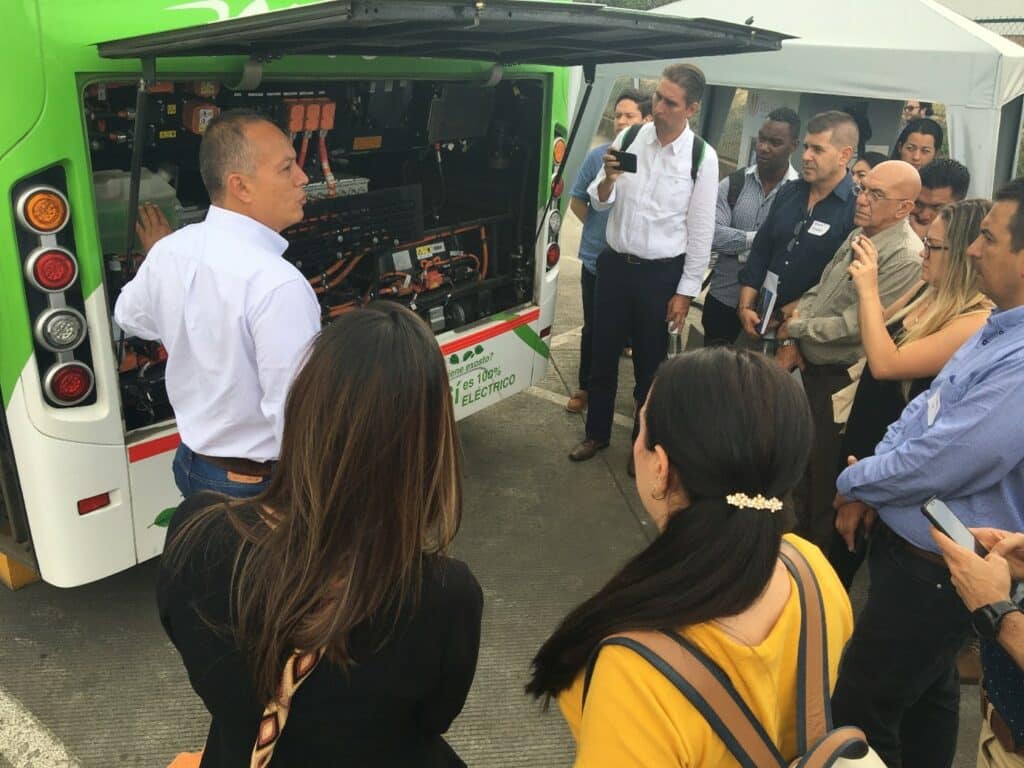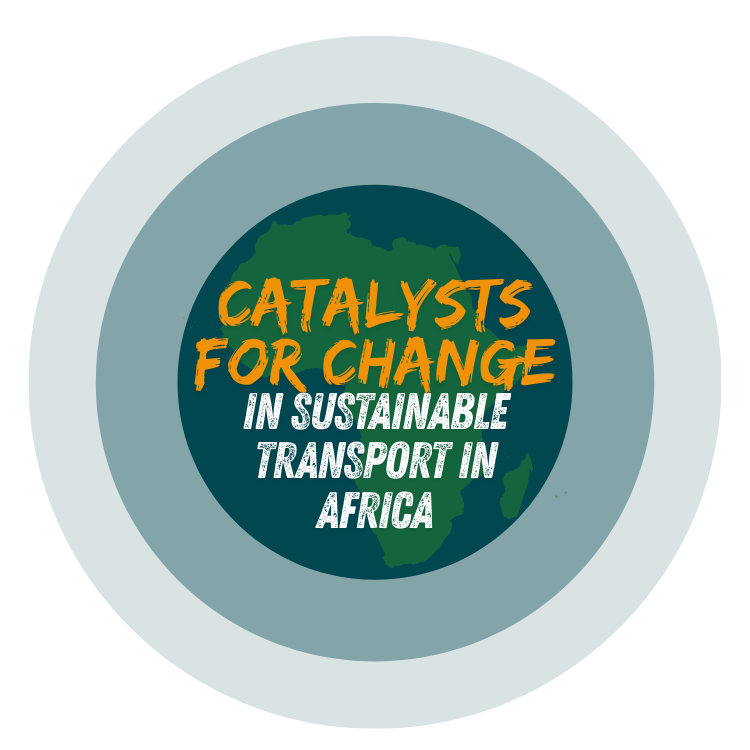
Colombia has been a leader in sustainable transport in Latin America for many years. Already in the 1990s Bogotá was recognised globally for its modern Bus Rapid Transit (BRT) system. However, in recent years, ridership has been declining in Colombian public transport systems, predominantly due to increasing private ownership of cars and motorcycles.
Strong growth in private transport represents a major challenge to Colombia’s climate goals, which have become steadily more ambitious and comprehensive over time. Colombia’s current NDC foresees six main actions to reduce transport-sector greenhouse gas (GHG) emissions up to 2030, including transport electrification, support for active mobility and demand management, fluvial and train corridor development, and performance-based plane navigation.
Buses play a vital role in Colombia’s transport landscape. Colombia’s 15,000 buses provide for nearly 6 million passenger trips each day (source: TRANSfer III estimation using data from the Colombian Ministry of Transport on 2018 and 2020). These buses emit some 1.3 million-tons of CO2e per year, which represents 6% of the national transport-related GHG emissions. The bus systems’ various configurations – from small feeder buses to bi-articulated high-frequency corridor buses – has an enormous untapped potential for transitioning to clean urban mobility. Mass adoption of electric buses would not only reduce GHG emissions, but also improve air quality and reduce noise pollution, with attendant benefits for human health and urban quality of life.
Against this backdrop, in 2019 the Colombian Ministry of Transport and GIZ identified public transport electrification as a key measure for decreasing GHG emissions and modernising public transport systems. As part of the TRANSfer III project, GIZ collaborated with the Colombian government to develop an electrification strategy for public transport. The project helps countries develop transport mitigation actions and thus fulfil their commitments under the Paris Agreement. It has been funded by the German government’s International Climate Initiative (IKI) since 2010.
With the aim of developing a public transport electrification strategy, experts at the Colombian Ministry of Transport and GIZ collaborated to (1) devise a public investment fund, (2) develop technical guidelines for bus electrification, (3) foster capacity development for planning, operating, and maintaining electric fleets, and (4) make necessary improvements to legal and institutional arrangements.
An initial analysis of the financial and economic evaluations of procuring electric buses on the different public transport configurations in the country drew an important conclusion: While e-buses have lower operating costs than their conventional counterparts, they have significantly higher upfront costs. This fact, in combination with the need to invest in charging infrastructure, significantly constrain the capacity of small to medium size operators to electrify their fleets. The most efficient way to promote e-bus adoption would be thus to offer financing instruments to close the investment cost difference between e-buses and conventional vehicles, the study concluded.
The study identified numerous additional barriers to e-bus adoption, including in particular: (1) the unprofitable nature of public transport systems and their reliance on public subsidies; and (2) investor reluctance to finance e-buses, given the novel nature of the technology, the current absence of charging infrastructure, and lack of expertise in managing and maintaining e-bus fleets.
To enable viable market conditions for e-bus adoption, the Colombian Ministry of Transport developed a proposal for a national investment fund that would promote the modernisation of public transport and light freight. This proposal was integrated into the 2022 Climate Action Law (2169). While this represents a tremendous step forward for bus fleet electrification in Colombia, financing is not the sole barrier to transformation.
A critical factor involves building capacities and human resources for planning and design and the operative sections. In partnership with another IKI funded project in Chile, a course on planning public transport electrification was developed and delivered to nearly 50 professionals by Universidad de Chile and Universidad de Los Andes in Colombia.
Building up human resources for the day-to-day technical operation was an even more significant challenge. Together with the National Training Service (SENA), a driver and maintenance curriculum was developed and will be offered by SENA at its vehicle training centers in Bogotá and Bucaramanga. The curriculum is specifically designed to encourage female participation in the transport sector as drivers and technicians. In Bogotá, just 290 drivers are women, while 19,117 are men, according to the municipal public transport operator. Gender-oriented education measures can address this profound gender gap, which is attributable to cultural biases and stereotypes, self-discrimination, and hidden prejudices about women’s ability to cope in predominantly male working contexts.
To introduce electric buses, bus operators also need to understand and develop business models for procuring electricity. The TRANSfer team worked with the city of Bogota to develop a new business model for partnership with utility companies, in which land use rights are granted in exchange for the provisoin of utility services. The goal was to obtain bids for developing 20 public charging stations in the city.
With the aim of helping local government and public transport actors to understand the electricity market and the value chain for fleet charging, TRANSfer developed a special guide to energy supply for electric vehicles in Colombia, which has been disseminated throughout the country.
A more detailed discussion of the activities and outcomes of the TRANSfer III project in Colombia is available for download here.
The report estimates that e-bus adoption has an aggregate mitigation potential of 1.8 Mt CO2e up to 2030 and recommends investment of 791 million euros.
The following lessons learned emerged from the project:
The TRANSfer project is implemented by the Deutsche Gesellschaft für Internationale Zusammenarbeit (GIZ) GmbH and funded by the International Climate Initiative (IKI) of the German Federal Ministry for Economic Affairs and Climate Action (BMWK).
 Course on planning public transport electrification © TRANSfer III, GIZ
Course on planning public transport electrification © TRANSfer III, GIZ

Andres Martinez
andres.martinez1@giz.de
Visit profile
If you believe that you suffer (potential) negative social and/or environmental consequences from IKI projects, or wish to report the improper use of funds, to voice complaints and seek redress, you can do so using the IKI Independent Complaint Mechanism.
